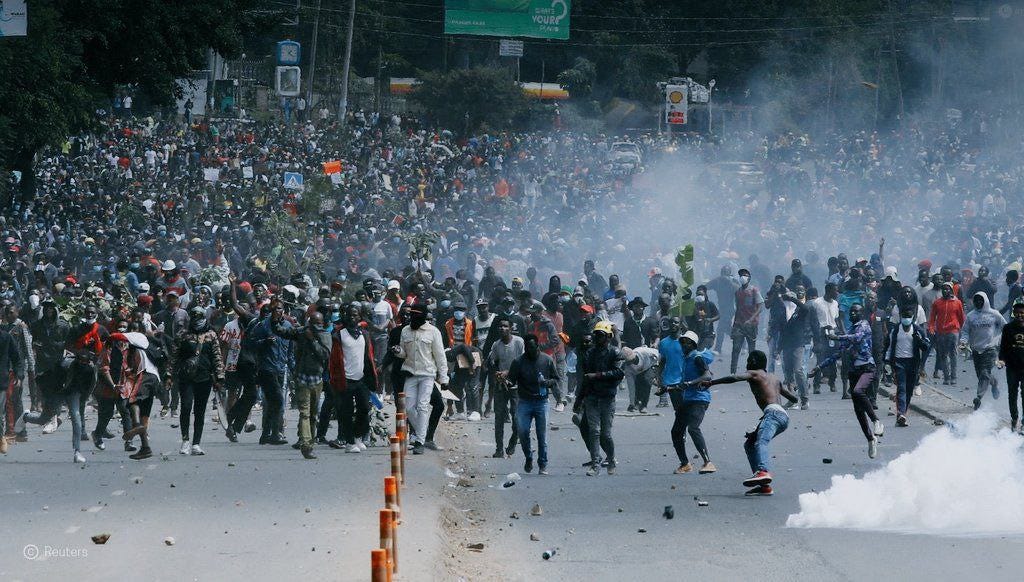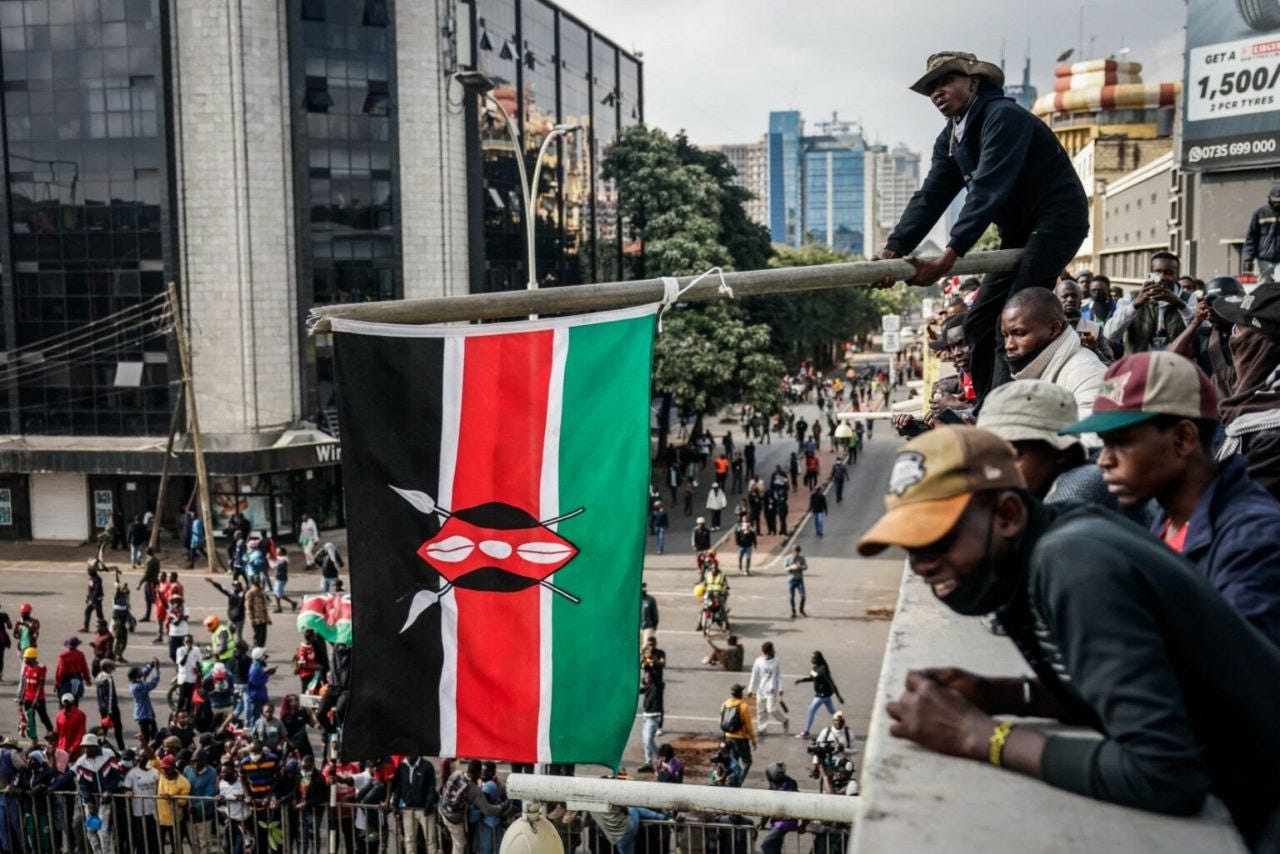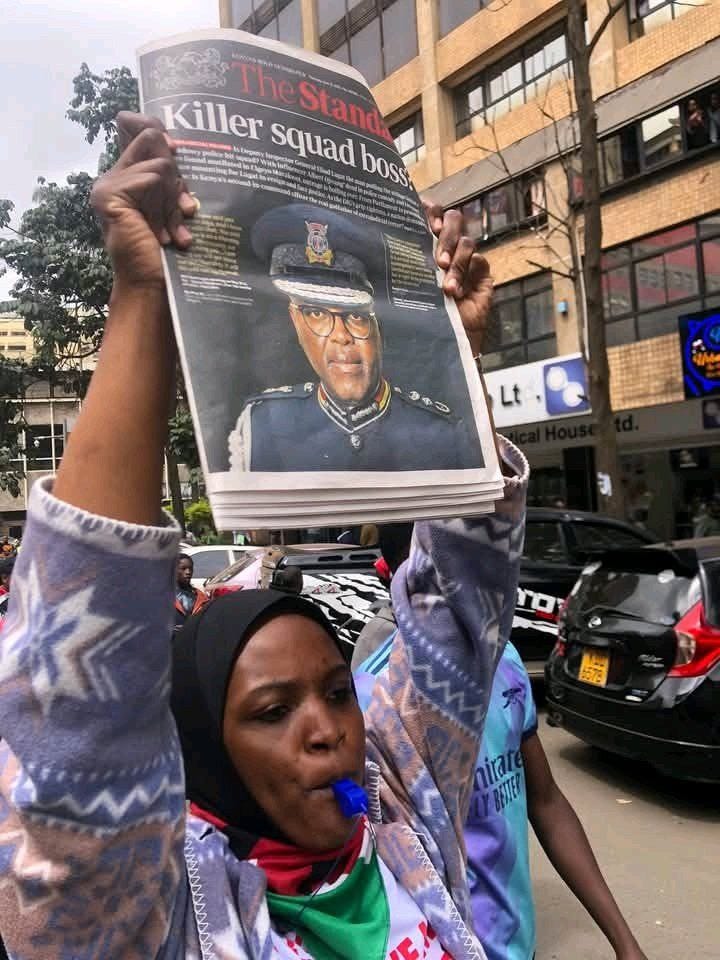Justice for Albert, Justice for Kenya: A Nation at Breaking Point
At exactly 9:24 p.m. on June 7, 2025, Albert Ojwang made his final call. "I've arrived at Central Police Station. Don't worry," he reassured his wife. The 31-year-old teacher was dead hours later
According to police, Albert commited suicide by "throwing himself against a wall." But an independent autopsy revealed the truth: blunt trauma to the head, neck compression, and widespread bruising. These weren’t the injuries of a man who fell. They were the signs of a man beaten, choked, silenced.
Albert’s death wasn’t just a tragedy. It was a warning. It was the final straw in a country already suffocating under the weight of corruption, government sponsored abductions police brutality, and failed leadership. It lit the fuse. And Kenya exploded.
Support my research and articles through cashapp
Section 1: A Generation in Revolt, Again
One year after the Finance Bill protests of June 2024—where police bullets ended the lives of over 60 innocent Kenyans—the same horror returned. On June 25, 2025, Kenya witnessed another bloodbath. Thousands of Gen-Z-led protesters filled the streets of Nairobi, Kisumu, Nakuru, and Mombasa, demanding justice for Albert and accountability from a regime that kills its own.
But President Ruto's administration responded the same way it always does—with force, not dialogue.
Police opened fire. At least 16 protesters were killed, according to Amnesty Kenya and the Independent Policing Oversight Authority (IPOA). More than 400 were injured. Tear gas filled schoolyards. Live rounds echoed across slums. In Kibera, a young protester lay bleeding from a thigh wound, whispering, "I just want justice for Albert."
This was not crowd control. This was a massacre.
Section 2: A Government Afraid of Truth
As violence escalated, the government attempted to black out the truth. Without explanation, it pulled KTN, NTV, and Citizen TV off the air. News anchors were silenced mid-sentence. Independent voices were cut.
But Kenya’s youth refused to be censored.
Social media became the new frontline. Hashtags like #ArrestEliudLagat, #SiriNiNumbers, #JusticeForAlbert and #RutoMustGo trended across the continent. Footage of a street hawker shot point-blank. Images of children coughing in tear gas. Videos of police dragging lifeless bodies into unmarked trucks. Kenya saw it. The world saw it.
The Katiba Institute and Media Council of Kenya called the blackout an assault on democracy. "We are not at war," said one activist. "But our government acts like it is at war with us."
Section 3: Albert Was Not the First
Albert wasn’t just a victim. He was a mirror. A teacher of Kiswahili and CRE. A blogger who called out the rot at the top. His final posts exposed Deputy Inspector General Eliud Lagat for corruption. Within days, he was arrested. Secretly transferred 350 km away. Murdered in police custody.
The state claimed it was suicide. The autopsy said otherwise. His skull was fractured. His neck compressed. His family never saw him alive again.
But this regime’s cruelty doesn’t stop with Albert.
Last year, at least 60 unarmed protesters were killed when Ruto’s Finance Bill sparked national outrage. Promises were made. Investigations announced. Yet no one in power was punished. Instead, the same taxes returned. So did the same bullets.
Section 4: Ruto's Regime and the Culture of Violence
Under President William Ruto, the Kenyan state has become increasingly authoritarian. Critics are harassed. Protesters are shot. Journalists are gagged. Corruption thrives while hospitals collapse, unemployment soars, and families go hungry.
Every tear gas canister fired yesterday was another sign of a leadership in crisis. Every bullet another page in a bloodstained record.
This is no longer about reform. This is about survival.
Section 5: The Streets Will Not Forget
Civil society is demanding more than investigations. They are demanding resignations. Accountability. Change.
The IPOA has suspended six officers connected to Albert’s killing. But the real architects remain in power. Lagat is untouched. Ruto has issued no apology. Only silence.
But the people are done waiting.
From Mathare to Mombasa, they are organizing. They are marching. They are documenting everything.
Conclusion: This Time, We Remember. This Time, We Fight.
Albert is gone. But his death is not forgotten. It is a rallying cry.
This generation may be young. But it is awake. It is angry. And it will not be silenced.
The blood on Ruto’s hands will not dry in the shadows. Kenya is watching. The world is watching.
And this time, the people will not back down.
Sources:
Amnesty International
The Guardian (June 25, 2025)
Reuters (June 26, 2025)
Katiba Institute
Kenya Human Rights Commission
Independent Policing Oversight Authority
Family interviews and citizen video accounts (Compiled from verified social media sources)







The Kenyan state has always been authoritarian, because after so-called independence it became a neocolony of the u.s. & britain, with these countries spending billions to support each presidential regime. The people *should* be at war with the state. Defend ourselves, fight back, attack colonial infrastructure & enforcers.
Injustice anywhere is a threat to justice everywhere! Haki kwa Albert!